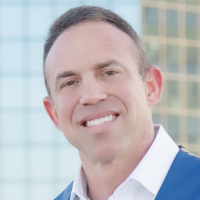3 Ways to Update Your Investing in the New Reality
You’ve done well saving for retirement so far, but times have changed. You can do better.


Profit and prosper with the best of Kiplinger's advice on investing, taxes, retirement, personal finance and much more. Delivered daily. Enter your email in the box and click Sign Me Up.
You are now subscribed
Your newsletter sign-up was successful
Want to add more newsletters?

Delivered daily
Kiplinger Today
Profit and prosper with the best of Kiplinger's advice on investing, taxes, retirement, personal finance and much more delivered daily. Smart money moves start here.

Sent five days a week
Kiplinger A Step Ahead
Get practical help to make better financial decisions in your everyday life, from spending to savings on top deals.

Delivered daily
Kiplinger Closing Bell
Get today's biggest financial and investing headlines delivered to your inbox every day the U.S. stock market is open.

Sent twice a week
Kiplinger Adviser Intel
Financial pros across the country share best practices and fresh tactics to preserve and grow your wealth.

Delivered weekly
Kiplinger Tax Tips
Trim your federal and state tax bills with practical tax-planning and tax-cutting strategies.

Sent twice a week
Kiplinger Retirement Tips
Your twice-a-week guide to planning and enjoying a financially secure and richly rewarding retirement

Sent bimonthly.
Kiplinger Adviser Angle
Insights for advisers, wealth managers and other financial professionals.

Sent twice a week
Kiplinger Investing Weekly
Your twice-a-week roundup of promising stocks, funds, companies and industries you should consider, ones you should avoid, and why.

Sent weekly for six weeks
Kiplinger Invest for Retirement
Your step-by-step six-part series on how to invest for retirement, from devising a successful strategy to exactly which investments to choose.
Navy Adm. Grace Hopper, who is considered one of the greatest innovators of our time, once said, “The most dangerous phrase in the English language is, ‘We have always done it this way.’”
When I hear those words, it reminds me of the story about the young entrepreneur named Reed Hastings. Twenty years ago, he mustered the courage to pitch a potential merger between his fledgling company, Netflix, and mega-movie behemoth Blockbuster. His proposal: Team up to build a better online platform and keep both businesses growing into the future.
Blockbuster passed on the deal, claiming it did not fit their model and would only appeal to a small niche at best. The rest would become history, as Blockbuster filed for bankruptcy in 2010, and Netflix is now valued at $187 billion with 183 million subscribers.
From just $107.88 $24.99 for Kiplinger Personal Finance
Become a smarter, better informed investor. Subscribe from just $107.88 $24.99, plus get up to 4 Special Issues

Sign up for Kiplinger’s Free Newsletters
Profit and prosper with the best of expert advice on investing, taxes, retirement, personal finance and more - straight to your e-mail.
Profit and prosper with the best of expert advice - straight to your e-mail.
Other companies have faced similar fates because they focused more on continuing what they had always done, rather than ways to adapt with the times. Change can be scary and often requires you to step outside your comfort zone. But doing things the same way just to avoid the fear of change, can cause you to stagnate and miss new opportunities that may offer a better way.
Times have changed for retirement savers, too
The financial industry has changed over time as well. Factors now impacting our markets did not even exist when traditional investing methods, such as asset allocation, diversification and buy-and-hold, were first introduced. Globalization, innovation and technology have made the stock market, and investors, more vulnerable than ever. Popular strategies that originated over 60 years ago were never designed to defend against the so-called “black swan” event (economic bubble, financial collapse or a worldwide pandemic) that can appear without warning and inflict devastation on a portfolio.
We live in a new reality — with new challenges — requiring new solutions. But while many high-net-worth investors, institutions and pension plans have upgraded their investing approach to align with the times, the financial industry has opted to continue promoting the same old strategies to everyday investors. In some circumstances, these have the potential to do more harm than good.
Old Ways were not created for the New Days
For example:
Diversification may no longer be the best remedy to protect against loss.
Asset allocation and diversification are based on the idea that you will assemble a portfolio with investments that, in an ideal world, will perform differently from one another through various market conditions to help balance risk over time.
But unfortunately, we don’t live in an ideal world. In recent market history (since the 2008 financial crisis), ongoing correlation has increased between asset classes. This means that instead moving away from each other as intended, different investments may become more aligned and move in tandem. Market history has shown this occurrence becomes even more likely during times of decline. Then, once the market sell-off subsides and volatility returns to normal levels, these investments begin to move against each other as originally intended. In other words, the protection features expected from diversification may actually be weakest when needed most, during decline, only to then impede the potential for growth once the recovery phase begins.
Buy-and-hold does not address the full picture for making money.
Warren Buffett once said, “Our favorite stock holding period is forever.” However, it can be argued this buy-and-hold philosophy is a passive approach that only addresses one side of the equation. It provides offense, while ignoring defense. It implies that risk is something that must be accepted rather than controlled. It refuses to adjust as markets change and prefers to rely on long-term potential while disregarding short-term trends.
“More risk, more reward” is a myth.
Economic theory (and conventional wisdom) has long suggested that taking more risk is, on average, rewarded with a higher return. In other words, if you’re willing to take the chance, the occasional big winner will offset your other losses. But this assumption has been disproved time and again with the emergence of new studies, strategies and investing options. Updated methods have proved the opposite to be true; and I personally know many investors who have been able to increase reward while simultaneously decreasing risk. Investing is a journey, and it’s important to remember that in the end, your success will be determined by what you made in good times, and kept during declines.
The No. 1 statement I hear the most when updating a client’s investing approach from old to new is, “I always thought I should be doing something different; I just never knew what else I could do.”
Unfortunately, I believe those working in the financial industry are often more focused on getting your money rather than growing your money. And they know the best way to accomplish this is by keeping you in your comfort zone, by encouraging you to continue doing the same things you’ve always done, rather than trying to fight your fear of change.
But if you think back over time, there’s a pretty good chance the decisions that had the biggest impact on your life were also the ones that made you the most uncomfortable at the time. Like the first time you approached your future spouse, when you bought your first home or took a new job.
We live in a new reality where economic activity is unlike anything investors have ever experienced. A paradigm shift has transferred influence from man-to-machine and Wall Street-to-Main Street as the stock market has evolved. You are at a critical point when you must decide: Should you continue doing what you have always done, or be open to something new?
3 ways to modernize your investment approach
To help you upgrade your investing process, here are three strategies to consider:
- Rather than buy-and-hold, consider an approach designed to buy-and-adapt. Active methods like trend-following, adaptive-investing, and sector-rotation are designed to adjust as markets change, to increase positions of strength and reduce those of weakness.
- Diversify in a new way using a mix of different investment strategies rather than investment classes. Actively managed ETFs provide an array of updated strategies such as market-neutral, low-volatility, hedged, momentum, anti-beta, long-short and niche-based opportunities like innovation and online services.
- Invest in change by allocating a portion of your portfolio into options designed to profit from advancements in technology and innovation. Two examples of this approach include “Thematic” and “Disruptive” funds. Thematic funds seek out companies tied to a specific theme or niche that is growing in popularity with the ability to rotate from one to the next as momentum moves into new areas. Disruptive investing focuses on ground-level innovation that has the potential to change the way we live, such as electronic vehicles, “genomics” or advancements in DNA research, and cloud-based services to name a few.
After reading this, you may have a desire to upgrade your approach but just don’t have the time (or inclination) to stay on top of your investing as things continue to change. If this is the case, try to find someone who will do it for you. There is a new breed of advisers who have abandoned traditional methods to embrace a modernized approach with new opportunities.
Consider looking beyond the mainstream, past those financial professionals who sound like everyone else and rehash the same old methods, over and over. In today’s rapidly changing economic environment, it’s important to work with someone who is knowledgeable of ongoing changes and able to properly adapt and address updated factors with the new opportunities.
Kim Franke-Folstad contributed to this article.
This material is provided as a courtesy and for educational purposes only. Please consult your investment professional, legal or tax advisor for specific information pertaining to your situation. Investing involves risk including loss of principal. Advisory services offered through Enhance Wealth, a Member of Advisory Services Network, LLC.
The appearances in Kiplinger were obtained through a PR program. The columnist received assistance from a public relations firm in preparing this piece for submission to Kiplinger.com. Kiplinger was not compensated in any way.
Profit and prosper with the best of Kiplinger's advice on investing, taxes, retirement, personal finance and much more. Delivered daily. Enter your email in the box and click Sign Me Up.

Jason W. Veinot is host of the popular podcast, “Financial Insanity!®,” (www.financialinsanity.com), author of the guide “Stop the Insanity!” (www.stoptheinsanity.com) and CIO of Enhance Wealth, a member of Advisory Services Network LLC (www.enhancewealth.com) providing adaptive investing models, new world planning and ongoing education.
-
 Nasdaq Leads a Rocky Risk-On Rally: Stock Market Today
Nasdaq Leads a Rocky Risk-On Rally: Stock Market TodayAnother worrying bout of late-session weakness couldn't take down the main equity indexes on Wednesday.
-
 Quiz: Do You Know How to Avoid the "Medigap Trap?"
Quiz: Do You Know How to Avoid the "Medigap Trap?"Quiz Test your basic knowledge of the "Medigap Trap" in our quick quiz.
-
 5 Top Tax-Efficient Mutual Funds for Smarter Investing
5 Top Tax-Efficient Mutual Funds for Smarter InvestingMutual funds are many things, but "tax-friendly" usually isn't one of them. These are the exceptions.
-
 Social Security Break-Even Math Is Helpful, But Don't Let It Dictate When You'll File
Social Security Break-Even Math Is Helpful, But Don't Let It Dictate When You'll FileYour Social Security break-even age tells you how long you'd need to live for delaying to pay off, but shouldn't be the sole basis for deciding when to claim.
-
 I'm an Opportunity Zone Pro: This Is How to Deliver Roth-Like Tax-Free Growth (Without Contribution Limits)
I'm an Opportunity Zone Pro: This Is How to Deliver Roth-Like Tax-Free Growth (Without Contribution Limits)Investors who combine Roth IRAs, the gold standard of tax-free savings, with qualified opportunity funds could enjoy decades of tax-free growth.
-
 One of the Most Powerful Wealth-Building Moves a Woman Can Make: A Midcareer Pivot
One of the Most Powerful Wealth-Building Moves a Woman Can Make: A Midcareer PivotIf it feels like you can't sustain what you're doing for the next 20 years, it's time for an honest look at what's draining you and what energizes you.
-
 I'm a Wealth Adviser Obsessed With Mahjong: Here Are 8 Ways It Can Teach Us How to Manage Our Money
I'm a Wealth Adviser Obsessed With Mahjong: Here Are 8 Ways It Can Teach Us How to Manage Our MoneyThis increasingly popular Chinese game can teach us not only how to help manage our money but also how important it is to connect with other people.
-
 Looking for a Financial Book That Won't Put Your Young Adult to Sleep? This One Makes 'Cents'
Looking for a Financial Book That Won't Put Your Young Adult to Sleep? This One Makes 'Cents'"Wealth Your Way" by Cosmo DeStefano offers a highly accessible guide for young adults and their parents on building wealth through simple, consistent habits.
-
 Global Uncertainty Has Investors Running Scared: This Is How Advisers Can Reassure Them
Global Uncertainty Has Investors Running Scared: This Is How Advisers Can Reassure ThemHow can advisers reassure clients nervous about their plans in an increasingly complex and rapidly changing world? This conversational framework provides the key.
-
 I'm a Real Estate Investing Pro: This Is How to Use 1031 Exchanges to Scale Up Your Real Estate Empire
I'm a Real Estate Investing Pro: This Is How to Use 1031 Exchanges to Scale Up Your Real Estate EmpireSmall rental properties can be excellent investments, but you can use 1031 exchanges to transition to commercial real estate for bigger wealth-building.
-
 Should You Jump on the Roth Conversion Bandwagon? A Financial Adviser Weighs In
Should You Jump on the Roth Conversion Bandwagon? A Financial Adviser Weighs InRoth conversions are all the rage, but what works well for one household can cause financial strain for another. This is what you should consider before moving ahead.